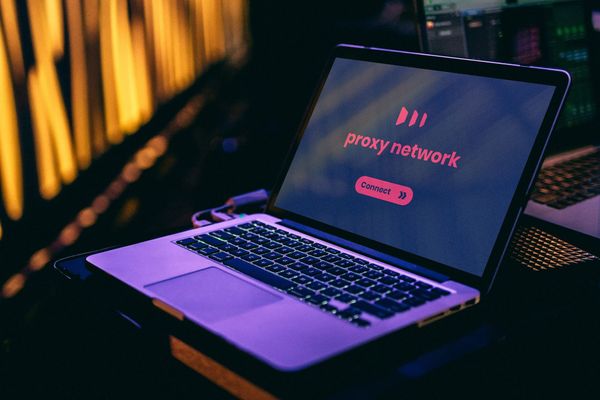Why You Shouldn’t Use a Free Proxy

The concept of online privacy has been around since the dawn of the internet. From digital footprints to data breaches, people are becoming increasingly aware of the need to protect their data when spending time online.
Proxy servers are still used to protect privacy, and they’re still popular for a few reasons. First and foremost, many proxy servers are free, which is a huge plus for users who don’t want to commit to paid alternatives.
Proxy servers act as intermediaries between your devices and the websites or online services you visit, providing anonymity by masking your IP address. While connected to a proxy, your web traffic is routed through another server outside your local network, making it hard for malicious actors to snoop on your online activities.
Why using free proxies is a bad idea
From privacy violations to malware, a free proxy server could expose users to various security issues. While these servers can offer easy anonymity, they come with significant risks - and some of them may not be obvious at first glance.
The most significant pitfalls of a free proxy server include:
- Lack of encryption
- Risk of traffic monitoring
- Malware-ridden ads
- Poor connectivity
- Cookie theft
1. Lack of encryption
Most free proxy servers don’t feature HTTPS support, meaning they lack encryption. Connecting to a non-encrypted server could let bad actors monitor your traffic and harvest sensitive data such as credentials or private communications.
Even worse, some proxy servers force users to load webpages in their unencrypted (HTTP) form. If a proxy server doesn’t have HTTPS support, it’s best to stay away from it.
2. Risk of traffic monitoring
It’s no secret that security certificates cost money, so free proxy server providers may choose not to offer HTTPS support to cut their expenses. However, a more disturbing reason free proxy operators avoid implementing HTTPS on their servers is to facilitate monitoring of traffic.
Threat actors may set free proxy servers as honeypots, tricking users into relaying their traffic through them and unwillingly handing over their sensitive data.
3. Malware-ridden ads
Although some free proxy operators host the services out of kindness and have no interest in turning profits, most attempt to generate revenue.
Embedding ads into the content is an old practice to help providers pay for their services. However, ads are still heavily exploited, and using free proxy servers could lead to nasty cases of malvertising.
Most service providers need more restrictive policies over the type of ads displayed on their platforms. Threat actors often attempt to weaponize providers’ carelessness through malware-ridden ads.
4. Poor connectivity
The popularity of free proxy servers also plays a crucial role in their downfall. Due to the massive number of concurrent connections they manage, individuals may notice poor or no connectivity.
Free proxy users often bounce from one server to another to bypass this situation, but this is just a temporary fix, as every free server eventually gets congested.
5. Cookie theft
Malicious proxy server operators could steal cookies storing your login data, then use them to hijack your accounts. Usually, cookies are generated locally, but relaying your connection through a proxy server could expose sensitive data to unwanted parties.
The best alternatives to free proxy servers
One of the best ways to prevent the situations above is to avoid using free proxy servers; most of them are unsafe, and finding the safe ones can be challenging.
The most obvious solution is to find a premium proxy service. Paid proxy providers are usually more careful with customer privacy, as they can be held accountable for the quality of their service.
However, a VPN can protect your privacy better than a proxy for numerous reasons. Much like proxies, trustworthy VPN services route your traffic outside your network. However, they also cipher it using sturdy encryption algorithms.
Furthermore, VPNs such as Bitdefender VPN can keep you safe from targeted attacks, protect your privacy on public networks, circumvent geo-restrictions and bypass unfair limitations such as ISP bandwidth throttling.
tags
Author

Vlad's love for technology and writing created rich soil for his interest in cybersecurity to sprout into a full-on passion. Before becoming a Security Analyst, he covered tech and security topics.
View all postsRight now Top posts
Start Cyber Resilience and Don’t Be an April Fool This Spring and Beyond
April 01, 2024
Spam trends of the week: Cybercrooks phish for QuickBooks, American Express and banking accounts
November 28, 2023
FOLLOW US ON SOCIAL MEDIA
You might also like
Bookmarks








